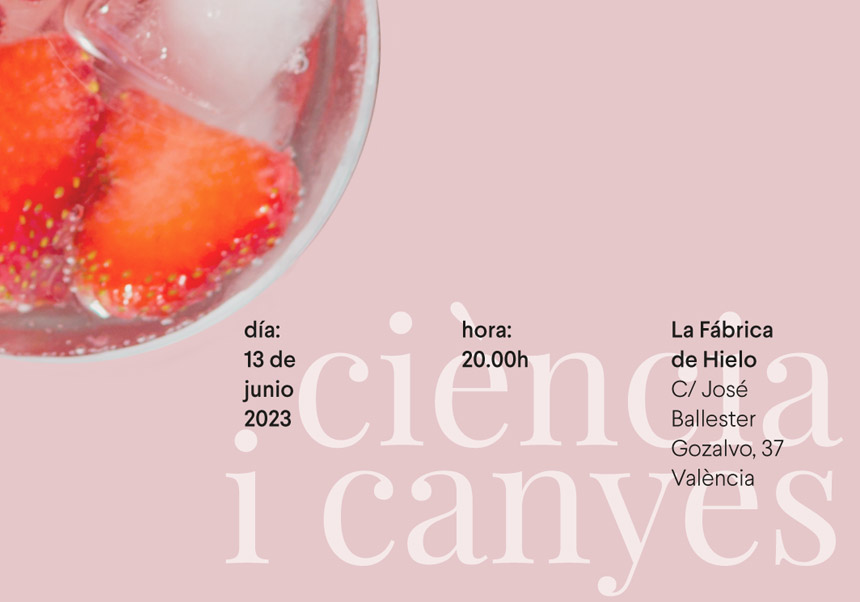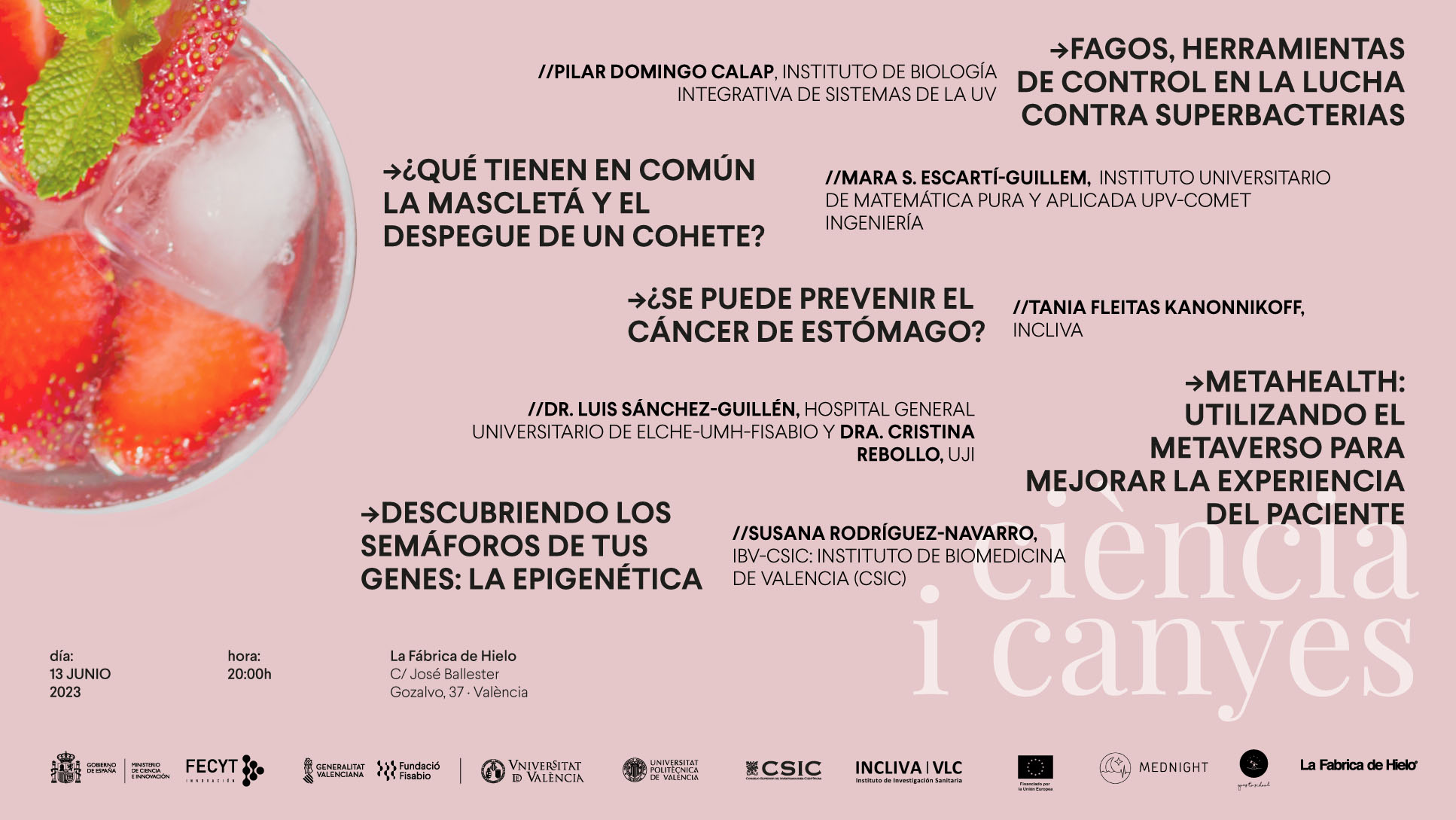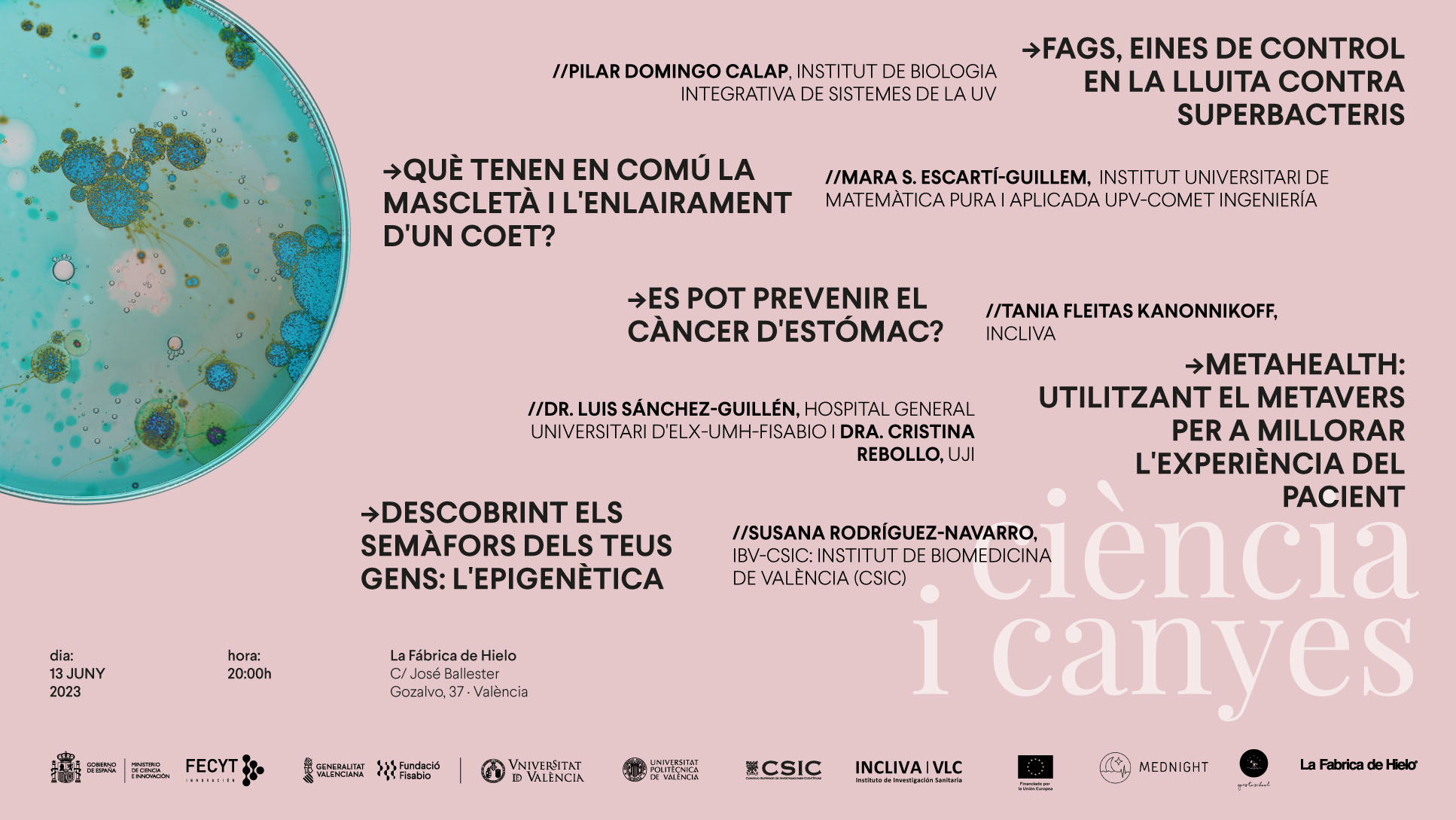Science and Beers deals with the prevention of stomach cancer, multi-resistant bacteria or epigenetics
- Scientific Culture and Innovation Unit
- June 12nd, 2023

The scientific dissemination project Science and Beers, of monologues and short talks on scientific knowledge, will hold a new session this Tuesday, June 13 at 8:00 p.m. at La Fábrica de Hielo in València. Multi-resistant bacteria and phages, acoustic vibrations after loud noises, risk factors and prevention strategies for stomach cancer, virtual reality to improve the patient experience or epigenetics are the five topics that will be covered.
The event is organised by the Foundation for the Promotion of Health and Biomedical Research of the Valencian Community (Fisabio), the University of Valencia (UV), the Polytechnic University of Valencia (UPV), the Spanish National Research Council (CSIC) and the Health Research Institute (INCLIVA). During the session, two interpreters from FESORD (Federation of Deaf People of the Valencian Community) will simultaneously translate the talk into sign language.
Pilar Domingo Calap, a researcher at the Institute of Integrative Systems Biology of the University of Valencia (UV) and the Higher Council for Scientific Research (CSIC), will participate in this session and will talk about multi-resistant bacteria and phages (a promising solution for the prevention, diagnosis and treatment of pathogenic bacteria) in her talk “Phages, control tools in the fight against superbugs”.
The talk by Mara Salut Escartí, a researcher at the University Institute of Pure and Applied Mathematics of the UPV-COMET is “What do the mascletá and the takeoff of a rocket have in common?”, In which she will talk about the acoustic vibrations that are produced after loud noises. In her doctoral thesis, she has developed materials capable of absorbing the noise of rocket launches and that can be used in the structure of the space launcher so that there is less noise transmitted to the inside. This work improves the reliability of the launch vehicle and ensures that the satellite or telescope will reach its working orbit in optimal conditions.
Tania Fleitas Kanonnikoff, researcher in the INCLIVA Colorectal Cancer Research and New Therapeutic Developments in Solid Tumours group, will comment on the risk factors and possible prevention strategies for stomach cancer in countries without population screening, guided by tools such as artificial intelligence. Her talk “Can stomach cancer be prevented?” will be based on her experience in the European projects LEGACy and AIDA.
The intervention by Luis Sánchez-Guillén and Cristina Rebollo Santamaría is “METAHEALTH: using the metaverse to improve the patient experience”. The first is a colorectal surgeon at the General University Hospital of Elche, a professor at the Miguel Hernández University (UMH) and a Fisabio researcher. Cristina Rebollo is a professor at the Jaume I University (UJI) in Castellón and a member of the “3D Visualisation” Group, registered at the Institute of New Imaging Technologies of the UJI. They have developed a 3D virtual environment with Virtual Reality that can be accessed through an app on any mobile device, and in which patients can visualise the healthcare environment to improve their experience and reduce anxiety associated with medical procedures. This translates into an improvement in health results both directly and indirectly, which reduces the shock of the patient and her close circle.
Finally, Susana Rodríguez-Navarro, from the Institute of Biomedicine of Valencia (IBV-CSIC) will present “Discovering the traffic lights of your genes: Epigenetics”, a talk on this field of study of genetics. In addition, she will answer, among other questions, why there are different cell types, why some microorganisms are able to adapt or why monozygotic twins can be different or suffer from different diseases.
The entrance to attend “Science and Beers” will be free until full capacity is reached. The project has the collaboration of the Spanish Foundation for Science and Technology - Ministry of Science and Innovation (FCT-21-17642).




















